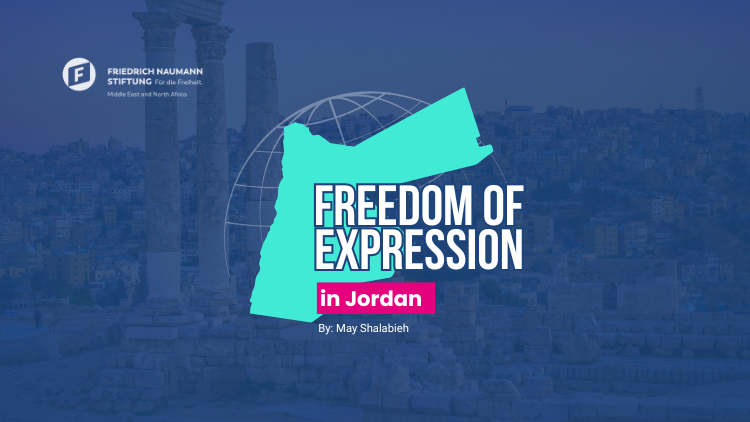Policy Brief
Freedom of Expression in Jordan

From First Place to Crackdown: Jordan’s Shrinking Space for Freedom of Expression
Why the 2023 Cybercrime Law Has Sparked Widespread Concern
In 2007, Jordan made regional headlines by becoming the first Arab country to pass a Freedom of Information Law, a historic achievement that signaled a strong commitment to openness and transparency. Today, nearly two decades later, those early democratic gains are under pressure. Jordan is facing a growing public outcry over the 2023 Cybercrime Law, a piece of legislation that critics say is undermining the very freedoms the country once championed.
The new law, introduced as an amendment to the temporary 2015 Cybercrime Law, was meant to address modern digital challenges. But instead, it has sparked fear, frustration, and fierce debate. Journalists, activists, caricaturists, photographers, and even everyday citizens now find themselves navigating an increasingly uncertain legal landscape. With vague definitions of terms like “fake news” and broad interpretations of “defamation,” the law has reportedly led to arrests, growing self-censorship, and the curtailment of free expression both online and offline.
One of the major controversies surrounding the law is the lack of meaningful public consultation. Despite early promises of a national dialogue, the legislation was passed without engaging key media stakeholders or incorporating recommendations from Jordan’s own National Center for Human Rights. This, coupled with overlapping provisions between the Cybercrime Law and the Penal Code, has created a legal minefield where freedom of speech is too often the casualty.
According to the 2024 Global Expression Report by Article 19, Jordan is now classified as “highly restrictive,” and Freedom House has downgraded its status from “partially free” to “not free.” These rankings are not merely symbolic, they reflect a tangible shift in how free Jordanians feel to speak, write, and express themselves without fear of legal retribution.
This regression is especially troubling for a country where over 60% of the population is under 30. Young Jordanians, already grappling with economic challenges and limited political representation, now face an additional burden: the erosion of their civil and political rights in digital spaces where they once found a voice.
So what can be done? A new policy brief titled “From First Place to Crackdown” outlines a set of actionable recommendations, ranging from constitutional mechanisms to legislative reform, that aim to restore and protect the fundamental right to free expression in Jordan. These include mobilizing members of parliament to propose new legislation, launching awareness campaigns, and holding long-overdue national dialogues with media professionals and civil society.
Jordan has proven before that it can lead the region in progressive reform. The question today is whether it can reclaim that role and reaffirm its commitment to the principles of open discourse, civic participation, and democratic resilience.
To learn more about the legal implications, public responses, and policy recommendations, we invite you to read the full policy brief:
